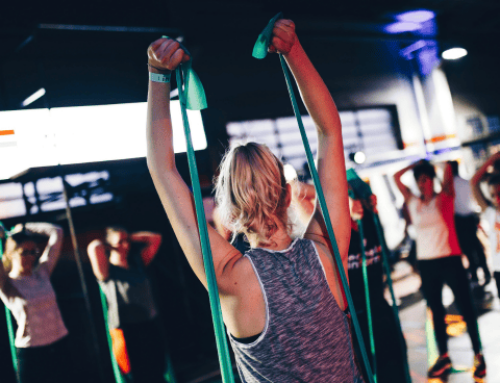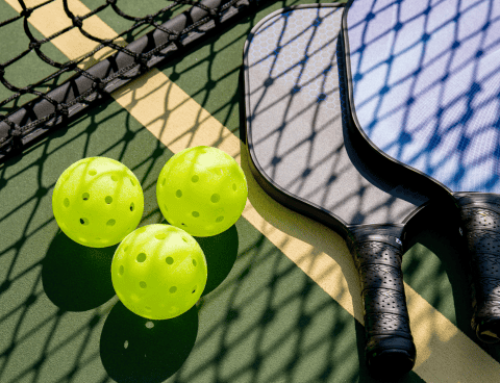The 5 Biggest Mistakes Athletes Make in Their Off-Season Training
Off-Season Mistake 1: Focusing more on skill than athleticism
Picture your potential as a house. The stronger the foundation, the higher the house can be built. Athleticism is your foundation. You must first master movement mechanics before moving on to skill work, particularly since specializing in one sport year-round creates body imbalances. A proper athletic training program will help cross-train the body back into a balanced state.
Training Tip: Master the fundamentals of running, jumping and changing direction. For example, if you’re a freshman baseball player, focus more on being an athlete than being a shortstop. Spend at least a couple of months a year enhancing your athleticism by increasing your speed, agility and power.
Off-Season Mistake 2: Not resting enough between exercises
To improve important aspects of your game—like speed, strength and agility—you have to train faster, quicker, and stronger than you have ever trained before. But if you’re not allowing yourself sufficient rest between sets, your training will become counterproductive. I recommend athletes place more emphasis on speed and strength results than on conditioning (See Off-Season Training Guidelines.)
Training Tip: Don’t do the next set or exercise until you can promise yourself that you will give it 100% effort. A heart rate monitor helps with this. When I’m training top-end speed, I do not sprint again until my heart rate is below 70% of my maximal heart rate.
Off-Season Mistake 3: Sacrificing exercise quality for quantity
Most athletes sacrifice quality of motion for quantity of motion. When challenged to do something like bench press 225 pounds five times, most athletes will try to get the job done by any means necessary. Valuing quantity over quality will set your body up for injury and lead to developing improper habits.(See Ask the Experts: How Long Should I Work Out?)
Training Tip: If you can’t do something right, don’t do it at all. Make changes in your training—e.g., drop to a lower weight, perform fewer reps, run less distance, increase rest time or lower the intensity—to ensure that you do every exercise with perfect form. Benching 205 pounds with perfect form is much better then benching 225 with your back in the air, the bar crooked or your spotter lifting the bar off your neck. (Consult Weight Room Injuries on the Rise: How to Buck the Trend.)
Off-Season Mistake 4: Paying less attention to recovery than to training
When you train, you break down muscle. When you recover, you build it back stronger than before, enabling your body to better handle the next training session. Athletes see more results from under-training than from overtraining. Be sure to take all the time you need to fully recover between workouts. Also, know the difference between a day off spent recovering and a day off spent sitting on the couch playing video games.
Training Tip: If you train hard, recover harder. Eat right, sleep eight hours a night, and don’t do intense training on at least two days a week. (Check out Your Guide to Optimal Recovery.) During your off days, facilitate recovery with light jogging and stretching, hot tub/cold tub contrast baths or any form of massage (with a foam roller, a tennis ball or a professional masseuse).
Off-Season Mistake 5: “Working out” instead of training
“Working out” is doing what you want to do. Training is doing what you need to do. A workout is a collection of unrelated exercises that give you a good sweat. Training is a program designed to help you achieve your goals and improve your performance on the field or court.
Training Tip: Random workouts produce random results. A quality, researched-backed training program will ensure you become the best version of yourself you can be. Set goals, find the right program to guide you, chart your progress and when you hit your goals, set more ambitious ones.
Photo: Darktiger via Flickr
RECOMMENDED FOR YOU
MOST POPULAR
The 5 Biggest Mistakes Athletes Make in Their Off-Season Training
Off-Season Mistake 1: Focusing more on skill than athleticism
Picture your potential as a house. The stronger the foundation, the higher the house can be built. Athleticism is your foundation. You must first master movement mechanics before moving on to skill work, particularly since specializing in one sport year-round creates body imbalances. A proper athletic training program will help cross-train the body back into a balanced state.
Training Tip: Master the fundamentals of running, jumping and changing direction. For example, if you’re a freshman baseball player, focus more on being an athlete than being a shortstop. Spend at least a couple of months a year enhancing your athleticism by increasing your speed, agility and power.
Off-Season Mistake 2: Not resting enough between exercises
To improve important aspects of your game—like speed, strength and agility—you have to train faster, quicker, and stronger than you have ever trained before. But if you’re not allowing yourself sufficient rest between sets, your training will become counterproductive. I recommend athletes place more emphasis on speed and strength results than on conditioning (See Off-Season Training Guidelines.)
Training Tip: Don’t do the next set or exercise until you can promise yourself that you will give it 100% effort. A heart rate monitor helps with this. When I’m training top-end speed, I do not sprint again until my heart rate is below 70% of my maximal heart rate.
Off-Season Mistake 3: Sacrificing exercise quality for quantity
Most athletes sacrifice quality of motion for quantity of motion. When challenged to do something like bench press 225 pounds five times, most athletes will try to get the job done by any means necessary. Valuing quantity over quality will set your body up for injury and lead to developing improper habits.(See Ask the Experts: How Long Should I Work Out?)
Training Tip: If you can’t do something right, don’t do it at all. Make changes in your training—e.g., drop to a lower weight, perform fewer reps, run less distance, increase rest time or lower the intensity—to ensure that you do every exercise with perfect form. Benching 205 pounds with perfect form is much better then benching 225 with your back in the air, the bar crooked or your spotter lifting the bar off your neck. (Consult Weight Room Injuries on the Rise: How to Buck the Trend.)
Off-Season Mistake 4: Paying less attention to recovery than to training
When you train, you break down muscle. When you recover, you build it back stronger than before, enabling your body to better handle the next training session. Athletes see more results from under-training than from overtraining. Be sure to take all the time you need to fully recover between workouts. Also, know the difference between a day off spent recovering and a day off spent sitting on the couch playing video games.
Training Tip: If you train hard, recover harder. Eat right, sleep eight hours a night, and don’t do intense training on at least two days a week. (Check out Your Guide to Optimal Recovery.) During your off days, facilitate recovery with light jogging and stretching, hot tub/cold tub contrast baths or any form of massage (with a foam roller, a tennis ball or a professional masseuse).
Off-Season Mistake 5: “Working out” instead of training
“Working out” is doing what you want to do. Training is doing what you need to do. A workout is a collection of unrelated exercises that give you a good sweat. Training is a program designed to help you achieve your goals and improve your performance on the field or court.
Training Tip: Random workouts produce random results. A quality, researched-backed training program will ensure you become the best version of yourself you can be. Set goals, find the right program to guide you, chart your progress and when you hit your goals, set more ambitious ones.
Photo: Darktiger via Flickr












